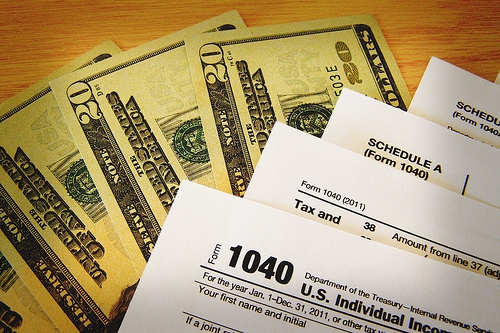In a 2019 U.S. Tax Court case, Palmolive Building Investors, LLC v. Commissioner, 152 T.C. No. 4, (2019) (Palmolive II), the Tax Court held that both penalties determined by the Revenue Agent in a tax audit and additional penalties later determined by an Appeals Officer in the IRS Independent Office of Appeals met the written approval requirements of I.R.C. § 6751; thus making Palmolive Building Investors, LLC (Palmolive) a two-time loser. Palmolive was initially in Tax Court in 2017 (Palmolive I) over a disallowed charitable deduction for a façade easement. As the owner of a historical building in Chicago, it had donated a façade easement to a conservation organization and took a large charitable deduction for the easement. In addition to questioning the $33,410,000 valuation of the easement, the IRS argued that the mortgages on the building limited the easement’s protection in perpetuity. The Tax Court agreed and concluded that the façade easement was not protected in perpetuity and therefore failed to qualify for a charitable deduction under I.R.C. § 170(h)(5)(A).
Following the disallowance in Palmolive I, the taxpayer returned to the Tax Court to dispute whether the penalties assessed by the IRS complied with the provisions of IRC Section 6751(b)(1). During a tax audit, a Revenue Agent had asserted in a 30-day letter that Palmolive was responsible for a 40% penalty for a gross valuation misstatement and a 20% negligence penalty. These two penalties were approved on Form 5701 by the Revenue Agent’s supervisor. Subsequently, a 60-day letter was issued. The taxpayer took its case to the IRS Office of Appeals. The Appeals Officer assigned to the case proposed four penalties: the two assessed by the Revenue Agent and the Substantial Understatement and Substantial Valuation Misstatement penalties. The Appeals Officer’s immediate supervisor approved all of these penalties on Form 5402-c. In Tax Court, Palmolive argued that the initial determination of penalties was made by the Revenue Agent who did not assert the Substantial Understatement and Substantial Valuation Misstatement penalties; therefore the penalties asserted by the Appeals Officer were not approved as part of the first determination of the penalties.
In examining the validity of the penalty assessments, the court cited I.R.C. § 6751(b)(1) which states that penalties can only be assessed when the initial determination of such penalties are approved in writing by the immediate supervisor of the person making the determination. The court also pointed out that the Congressional motive behind enacting this provision was to make sure penalties were not used as bargaining chips. The court first noted that all penalties were approved in writing. The next issue was what defines an “initial determination” for the purposes if I.R.C. § 6751(b)(1). The court held that the initial determination is when the penalties were first communicated to the taxpayer. The court stated that the Revenue Agent’s 2008 mailing of the 30-day letter was the date of the initial determination and the Appeals Officer’s 2014 issuance of the Notice of Final Partnership Administrate Adjustment are both initial determinations. Since the IRS forms were signed by the respective supervisors prior to the time of the initial determinations, the penalties met the requirements of Section 6751(b) (1).
 Tax Problem Attorney Blog
Tax Problem Attorney Blog




 Tax scams have likely been around for as long as taxes have been collected. In light of the significant penalties, fines, prison sentences and other consequences that can be imposed for tax non-compliance issues, taxpayers have good reason to be apprehensive or nervous if they are contacted by someone claiming to
Tax scams have likely been around for as long as taxes have been collected. In light of the significant penalties, fines, prison sentences and other consequences that can be imposed for tax non-compliance issues, taxpayers have good reason to be apprehensive or nervous if they are contacted by someone claiming to